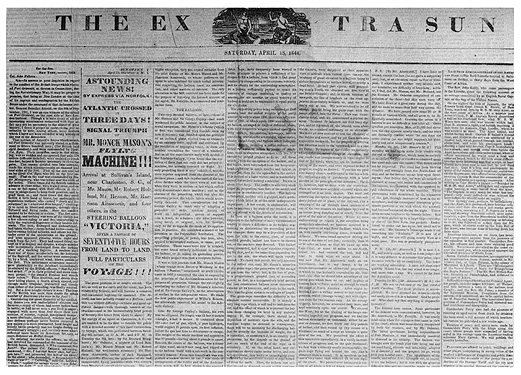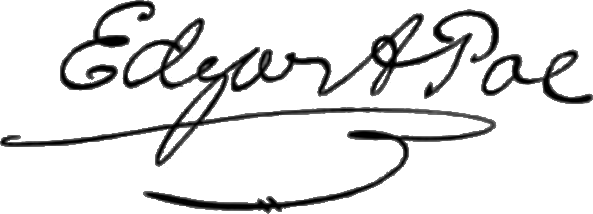
January 19, 1809 – October 7, 1849
Poe has become a mythical figure in American history. His work is constantly republished, adapted and performed. There are lunch boxes, toys and air fresheners with his likeness on them. There is a NFL team named after one of his poems. As with any popular figure, so many years on, it’s easy to spout the weird and random bits of their lives and think that provides a proper sense of the person. Here are a few facts and items that you may not have known or might provide a bit more context to those things you thought you knew.
Poe and the Military
Struggling to find his way in life, and seeking a way to escape the stormy relationship with his adopted father, Poe enlisted in the Army as Edgar A Perry (He also lied about his age as being 22. He was 18.). First assigned to a post in Boston, he was soon transferred to Fort Moultrie on Sullivan’s Island just off from Charleston, SC. He rose through the ranks quickly. Ultimately unhappy, he asked for permission to leave, which would not be granted unless he agreed to go to West Point.
“I have been in the American army as long as suits my ends or my inclination, and it is now time that I should leave it… The period of Enlistment is five years — the prime of my life would be wasted…” — Edgar Allan Poe
The National Park Service has put together a flyer about Poe and his time at Fort Moultrie and beyond.
The academy’s required four year commitment soon became burdensome and Poe felt it threatened his aspirations to become a writer. Unable to obtain permission to resign, Poe chose to neglect his duties. Before the end of his first year, Poe was court martialed for “gross neglect of duty” and “disobedience of orders.” He left West Point on February 19, 1831. Prior to leaving, he persuaded over one hundred cadets to contribute a dollar and a quarter each to finance the printing of a new edition of his poems.
Still, his time in South Carolina would stay with him. His treasure-hunting adventure story The Gold Bug was set on Sullivan’s Island. It’s likely the $100 he was paid for the story is the most he was ever paid for a single piece of writing. It was published in 1843.


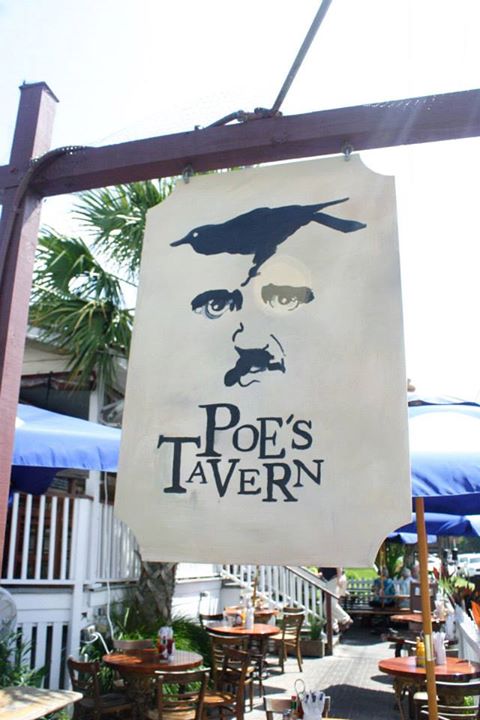

Today, you can visit Fort Moultrie and see where Poe was on duty. Just up the road is Poe’s Tavern, a local pub and restaurant dedicated to all things Poe.
That time he married his cousin when she was 13
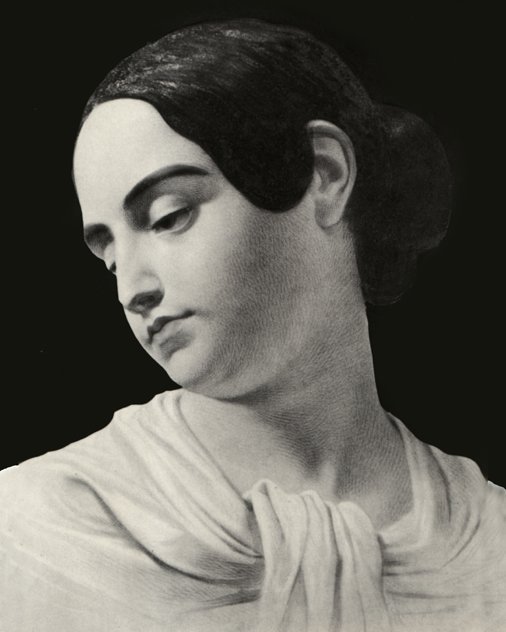
Yes, Poe did marry his cousin when she was just 13. But it’s not as weird as it sounds.
The entire Poe clan — cousins, half-siblings, step-parents, grandparents — was in a constant state of trying to make ends meet. This meant several instances of the extended family members sharing shabby housing to keep costs down. When the smallest of pensions ended with the death of a soldier’s widow, the Poes were left with no regular income. The household broke up and Poe accepted responsibility for the young Virginia Clemm.
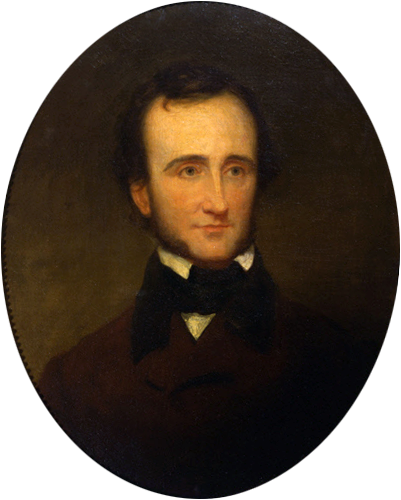
This was not an unusual option for the times. Edward Knight, brother of Jane Austen, was adopted by the wealthy but childless Thomas and Catherine Knight. Edward was well-loved and had a stable family. Why would he have been adopted by relative strangers? The Knights were wealthy and were unable to have children of their own. Due to the English rules of inheritance, all of their wealth would be entailed away without a definitive heir. Edward was not the eldest son and therefore would not inherit the Austen estate, so his options were limited. The solution worked for everyone — at least financially. Also, Edward would be able to support the female component of the Austen family in the decades to come.
Poe marrying his young cousin was about financial stability. Or at least the attempt of it. The two were a team and by most accounts it seems she was very supportive of his writing efforts. As creepy as his stories are, he was far less so. In fact, the disheveled image of a world-worn drunk only came at the end of his life (see the portrait above). The loss of family connections, and finally Virginia (she was just 24) pushed him to the brink.
A wicked sense of humor
Poe was not all death and dismemberment. In addition to numerous literary essays and criticisms, he loved a good joke.
In 1844, The Sun (NYC) published a fantastical story about an enterprising traveler who flew across the Atlantic in a hot air balloon.
Once again including his post at Fort Moultrie into a story, he writes:
The great problem is at length solved. The air, as well as the earth and the ocean, has been subdued by science, and will become a common and convenient highway for mankind. The Atlantic has been actually crossed in a Balloon; and this too without difficulty — without any great apparent danger — with thorough control of the machine — and in the inconceivably brief period of seventy-five hours from shore to shore! By the energy of an agent at Charleston, S.C., we are enabled to be the first to furnish the public with a detailed account of this most extraordinary voyage…
The only problem is, the entire thing was made up. It was a hoax. It is all a confabulation from Poe’s imagination. The public was convinced and the newspaper enjoyed a huge increase in sales. Which was why the paper agreed to run it at all. (For more about this questionable time in journalism, read The Sun and the Moon by Matthew Goodman or listen to this podcast from The Futility Closet).
Often this considered the first science fiction story as it uses actual bits of scientific information to create a plausible scenario.
Without Poe, there is no Sherlock
Poe’s tales of ratiocination, featuring Dupin, were the first detective stories. Arthur Conan Doyle gives credit to his forbearer in the preface to the collected Adventures of Sherlock Holmes:
Edgar Allan Poe, who, in his carelessly prodigal fashion, threw out the seeds from which so many of our present forms of literature have sprung, was the father of the detective tale, and covered its limits so completely that I fail to see how his followers can find any fresh ground which they can confidently call their own. For the secret of the thinness and also of the intensity of the detective story is, that the writer is left with only one quality, that of intellectual acuteness, with which to endow his hero. Everything else is outside the picture and weakens the effect. The problem and its solution must form the theme, and the character-drawing be limited and subordinate. On this narrow path the writer must walk, and he sees the footmarks of Poe always in front of him. He is happy if he ever finds the means of breaking away and striking out on some little side-track of his own. – A. Conan Doyle, Undershaw, Hindhead, 1901.
For his birthday…
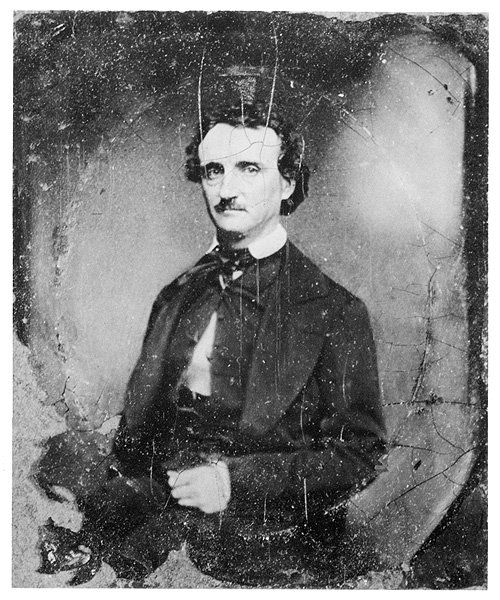
Raise a glass to Poe, read a poem or a story and enjoy the work of a truly American legend.

